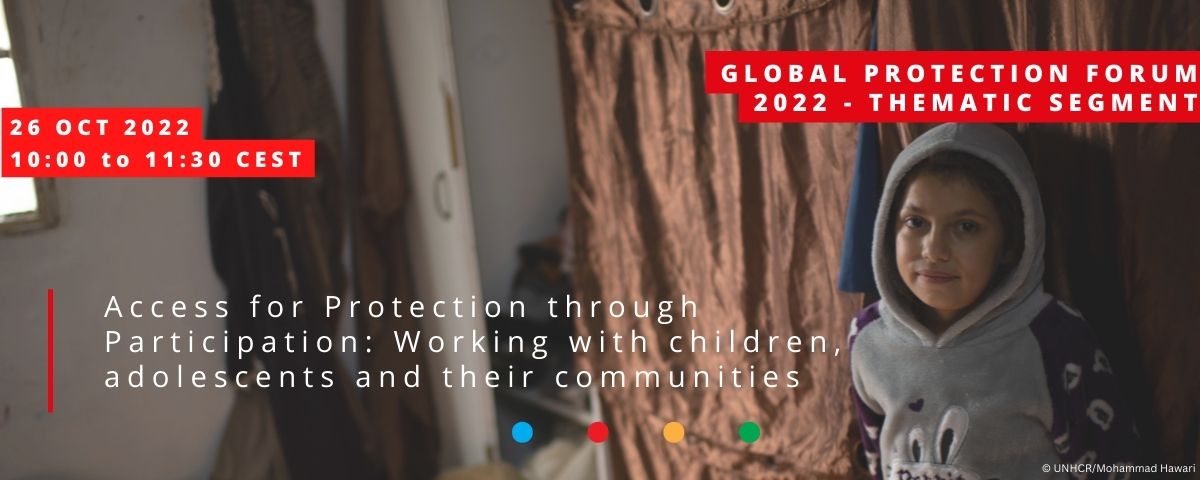Children and youth make up the majority of populations affected by humanitarian crises and often play a vital role in understanding protection needs and supporting self-protection and the protection of their peers . Young people are a unique and significant group of rights holders, with the right to be heard, and the right to exercise their agency.
Engaging with these populations provides opportunities to hear their opinion about their lives, protection needs and concerns. The ideas and views from young peoples’ direct experiences, can lead to more effective, relevant and sustainable decisions on protection policies and services, ensuring the needs of children and adolescents are central to protection responses. Too often, humanitarian actors shy away from supporting participation due to fear of doing harm, which is often based upon assumptions rather than risk analysis. This can severely undermine children and young people’s agency and ultimately hinder access to key populations in a humanitarian crisis and their ability to access critical protection services.
Regardless of humanitarian intervention, young people are affected by conflict and are often required to take a participative role in community-led self-protection strategies'. This can include participation with their communities in negotiations with armed actors around protection issues and access.
Research on existing knowledge and communities’ experiences of factors that affect successful outcomes from community dialogues has been conducted by Save the Children and the Norwegian Refugee Council shedding light on the significant role community members, and young people in particular, play in negotiations. The research aims to strengthen understanding on how community members, young people in communities and humanitarian organisations can act responsibly for and with affected populations and ultimately provide improved access and protection in these contexts.
The virtual event will provide space to share learnings and promote exchange from projects and research being undertaken by the Global CP AoR, the Global GBV AoR and the Alliance for Children Protection in Humanitarian Action and Save the Children in partnership with communities and child / adolescent organisations. On the community negotiations it will be a chance to present research findings and recommendations for humanitarian involvement in negotiations since the 2021 Global Protection Forum and to gather insights from an expert audience.
A set of recommendations will be developed from the panel presentations and discussion based upon practical examples and the lived experience of young people in humanitarian settings on how to enhance access to protection through supporting meaningful participation processes, including in negotiations for access. These will seek to inform how humanitarians can work
Simultaneous interpretation is available in French, Spanish and Arabic.
Background Reading:
Community Negotiations:
Colombia country report (by Save the Children): Community Negotiations access. Save the Children. Supporting Community-Led Negotiation Over Access to Resources, Goods and Services in Colombia | Save the Children’s Resource Centre
Participation:
Children 4 Peace: https://children4peacec4p.org/about-us/
Save the Children 2021, The Nine Basic Requirements for Meaningful and Ethical Child Participation
Alliance Strategy 2021-2025, ‘A Clarion Call: The Centrality of Children and their Protection within Humanitarian Action’
IASC, With us & for us: Working with and for Young People in Humanitarian and Protracted Crises, UNICEF and NRC for the Compact for Young People in Humanitarian Action, 2020
Save the Children, 2021, United They Stand: Moving beyond the participation-protection divide: Discussion paper
UNICEF 2020, ENGAGED AND HEARD! Guidelines on Adolescent Participation and Civic Engagement


